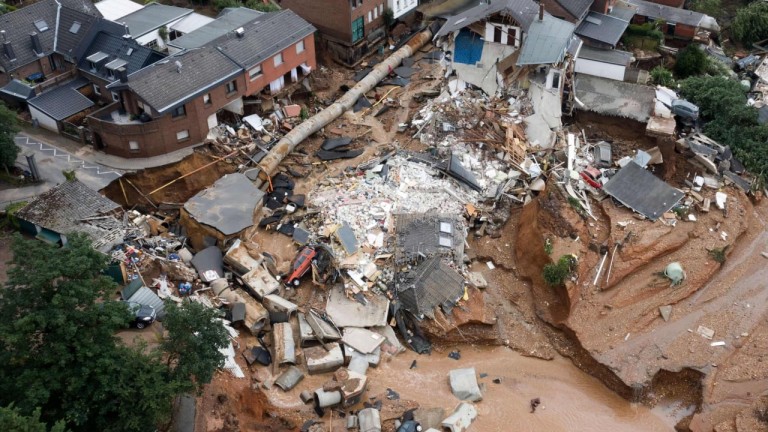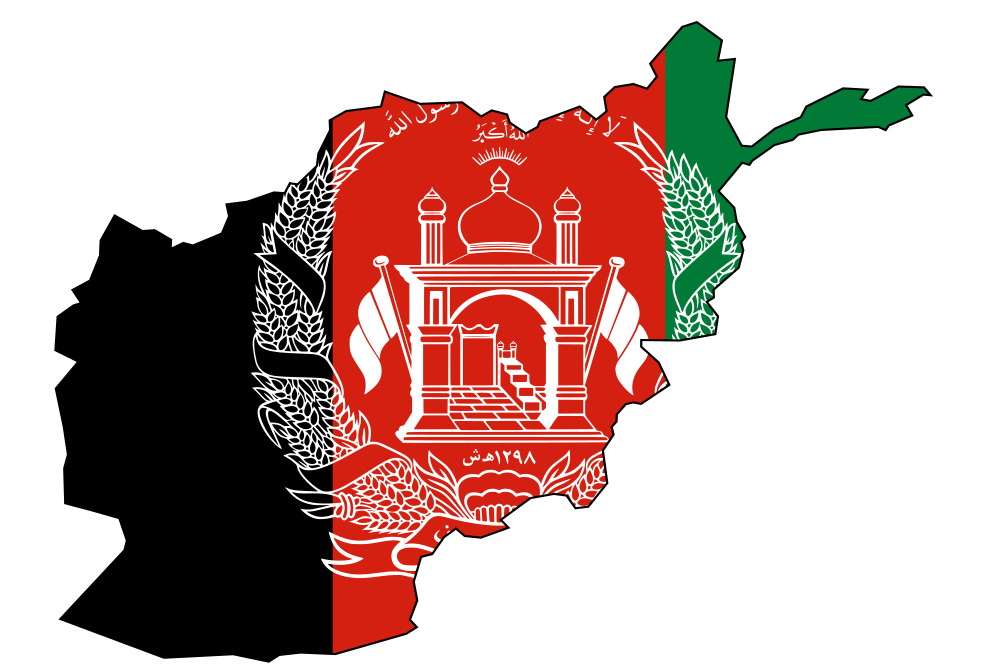Now here we are waving a good by to Summer 2021, or Winter 2021 depending on where ever you live. A summer full of events that will leave an impact on the world, politics, economics, and on us personally, probably more than we currently imagine. Here is a very brief summary ……

Weather Extremes
Around the World
- China: Mud slides caused by heavy rain kills 30+ people in Zhengzhou and almost 400,00 people faced relocation to shelters.
- Germany & Belgium: 200 people dead, and billions of euros worth of damage due to extreme flooding after torrential rains, 2 month worth of rainfall came down in 2 days)
- Western US & Canada: record breaking heat of 47.2°C (117°F) which caused wildfires, lead to dangerous health conditions and power grids close to breakdown
- Europe & Africa: suffered from persisent sizzling temperatures resulting in droughts, persistent wildfires with many dead, forests and harvests destroyed, wild life and livestock exstinguished.
- June and July: have been the hottest in the northern hemisphere since record taking started in 1890.
- Russia/Siberia: unprecedented wildfires, that started in April might not stop until October. Apart from severe destuction to the forest carbon pollution is significant.
Take-Away:
Climate change is increasing the frequency of extreme weather events. Weather extremes like this year would have been virtually impossible without the influence of human-caused climate change, this states a rapid attribution analysis by an international team of leading climate scientists.
The report by the UN Intergovernmental Panel on Climate Change made it clear that we are running out of time in the fight against climate change, and professionals across the investment industry were quick to point out that more must be done.
“For investors, all roads continue to lead towards net zero by 2050. This latest data should act as a stark reminder of why investors must look to the future and consider sectors such as renewable energy infrastructure to support the global ambition.”
Gemma Woodward, director of responsible investment at Quilter Cheviot
“As investors, we need to continue pushing companies to adopt science-based targets for their own emissions. We need to encourage highly pollutive companies to transition their business models to more sustainable paths, and we also need to channel capital to those companies that are researching and providing the climate solution tools that we all need to adopt.”
Randeep Somel, M&G Climate Solutions Fund.

More Covid ,
the Delta variant
and a third jab
- Rising Covid-19 cases around the world are due to the Covid Delta variant
- The variant is highly contagious but seems less deadly. The variant affect the young more than any of the previous mutations or maybe this is a consequence of younger people being less likely to be vaccinated
- New measures to curb the outbreak are being discussed. Some cities in China, Newzealand and Australia are again under lockdown to comply with their zero Covid strategy
- Most countries do not consider further full lockdowns
- Giving people a third jab as a booster is being discussed
- The WHO critizises offering 3rd jabs while the majority of the worlds poorer countries did not have a first vaccination
- The origin of new variants is attributed to countries with low vaccination rates
- Break through infections in people who are fully vaccinated can be observed, the majority has mild symptoms life threatening
- Biontech-Pfizer gets full FDA approval
- Countries like China, Australia and Newzealand yet again went into partial or total lockdown to curb the spread of the virus in their countries.
- Governments in Europe and the US do not impose further lockdown but discuss further measures to curb the spread of the new variant. From mask wearing to more testing to getting more people vaccinated.
- There is a global pandemic-fatigue and withit come more anti-vaccine, anti-mask, anti-lockdown, and anti-test protests.
- Vaccination rates slow down, despite enormous effort by governments to convince people.
- Many countries decide to declare the pandemic as endemic - like the seasonal flu, some thing we have to live with and can get a jab if we like to avoid getting ill.
Take-Away:
While further full lockdowns are highly unlikely, the Delta variant poses a problem for the global economy´s recovery.
China´s zero Covid policy results in partial lockdowns, that cause additional havoc in world trade and a rise in product prices. Delays and backlogs of components cause global manufacturers to shut down. Certainly a new downward spiral for those seeking jobs resulting in reduced consumer spending.
While markets hate uncertainty, we should remember, we’ve already lived through this before, but we made it through and to the other side.
Investments are meant for the long term. Growing and maintaining wealth takes time, consistency, and a level head. Changing the portfolio based on a quick dip in the market – or even an extended downturn – is a recipe for disaster. Those who were hurt most in the markets due to the pandemic were those who were short-term investors or emotional investors – neither of which is a great long-term strategy for growing wealth
The global economy will continue to depend on having the majority of the world population inoculated, simply because countries with large portions of their population being inoculated fare better economically than those with a low vaccination rate. It is however debatable if the 3rd jab within 6 months is necessary or just a clever move by governments and the pharma industry alike to dispose of vaccines reaching the end of their shelf life.

Inflation or no Inflation ?
- In July US consumer prices rose by 4.3%
- Inflation rate in the Euro Zone was above 3%
- Prices for comodities Germany has to import rose by 15%
- Central Banks keep flooding the markets with cheap money
- The price for oil or gas have seen the biggest increase since 40 years
- The central bank presidents of several European countries warn that hte inflation rate will go above 5%
- Jerome Powell seems to be unconcerned by inflation and continues his relaxed monetary policy
- People are panic-buying homes and fuel real-estate prices, they rise at the fastest pace ever.
- The global chip shortage leads to consumer product prices going up
- Timber prices in the US hit an alltime high
- The price of gold fell
- Earnings growth are expected to fall and anticipated profit growth will be under 9%
- Inflation is high but will go down once the global economy is back to pre-pandemic level.
Take-Away:
The(very) simple definition of inflation: Your paycheck goes up, but prices went up on just about everything, and your wage increase does not meet the price rise in goods, you’re not necessarily better off now than you were before.
Warnings about forthcoming inflation are as old as inflation itself. Here is a little secret, whoever likes to spread gloom picks a subject that affects many, to get full attention. Nor can Mr or Mrs. Gloom ever lose his/her reputation even if the event does not happen, as he/she continues to insist disaster is definitely coming, even if later than predicted, but it will come.
The Driver: Pandemic
2020 the global economy fell into a severe recession, due to the pandemic and strict lockdowns in many countries. Drastic measures around the globe brought consumer spending, manufacturing, and global trade to a total standstill. Now, the global economy is slowly bouncing back to a pre-pandemic state. Consumers catch up on shopping and manufacturing is in demand of raw material. The shortage of raw materials and components caused by lockdown measures and a severe shortage of containers results in rising prices. Contrary to prices salaries have not gone up and unemployment is still on the high side. Once the economy has fully rebound, production and transport backlogs overcome prices will rise slower and demand will normalize.
The Driver: Cheap Money
Central Banks all over the world pumped enormous amounts of money into their economies, but not only since 2020 but way before. Since the financial crisis, central banks have been pumping “cheap” money into the global markets. This allowed its actors to borrow money cheaply, easy, and risk-free, then as now only the amount of money has increased. It is debatable if the $3.5 Trillion the US government will be spending might be on the risky side and how this will affect the global economy in the long term. The fact the ever-increasing amount of liquidity is in search of opportunities. The stock market is driven to new heights, and people are getting richer and richer, paper at least. Whether current share prices still reflect companies’ actual value or whether the markets are already seriously overheated needs to be questioned.
It is without a doubt, a relaxed monetary policy by central banks helps governments to refinance their debts cheaply, and banks and companies with large debts in their books get the lifespan prolonged, in the long term we need to question how beneficial this is for already struggling economies.
The Driver: Climate Change
Co2 -prices will continue to rise because governments will have to raise energy prices to reach the climate goals agreed upon in the Paris Treaty. BCG estimates that by 2030 the price for a ton of C02 will rise to almost $300.
The Driver: Minimal Wage Policies and Shortage of Workforce
Many governments in western countries pledge to raise minimum wages. The babyboomer generation will soon retire, a reduced workforce will be able to push for higher wages. China´s cheap labor might also come to an end, China is, like western societies faced with receding birthrates, a rise in Chinese wages will have an effect on global inflation rates.
Healthy Inflation
A certain amount of inflation is healthy and necessary. Since the financial crisis, inflation Rates were around 1.5% with interest rates were at zero or even below, 2020 most inflation rates fell below 1% with the number of billionaires and millionaires grew exponentially.
To stabilize economies, eliminate zombie companies and encourage healthy economic growth we need some inflation, central banks control inflation by raising interest rates.
First signals for a change in policy to a possible end to the era of negative interest rates could be noted in Jackson Hole, it remains to be seen what decision the president of the EZB will make at the end of September.
Raising infection rates however due to the Delta variant could slow down economies again and the relaxed monetary policy will be continued at least global economies are on a stable upward trajectory.

China´s clampdown on tech and celebrities
Photo@The Drum Network
- The Ant Group´s IPO was pulled in November just days before it was due to go to public
- The owner of Alibaba , Jack Ma has gone silent and disappears from the public eye
- Chinese Celebrities, like actors and artist with the high income to match their status are ghosted and removed from social media platforms
- Didi - China´s Uber- is banned from Chinese app stores just days after it went public in the US
- The Chinese government introduces new regulatory requirements for tech companies who want to list abroad
- Private tech-companies are accused of data breaches and mishandling of personal data
- Private tutoring companies, set up to help students in the very competitive and exam focussed system, are to off to do "for profit tutoring"
Take-Away
The crackdown is “unprecedented in terms of its duration, intensity, scope, and the velocity of new policy announcements,”
Analyst,Goldman Sachs
The crackdown on tech companies focuses on the mishandling of data and posing a risk not only to national cybersecurity but personal privacy.
Chinese celebrities not only steal the show from party politicians but are seen as a threat to party dogma, they are a testament to the growing social inequalities in the country.
Private learning companies are accused of fostering societal inequalities by taking a fee, thus they are not accessible to everyone and are therefore complicit in social inequality
$1.2 trillion in market value has been wiped off, and will certainly crack China´s entrepreneurial spirit which will most likely slow down China´s rapid growth.
The fact is the Chinese cooperate market is in some sectors highly unregulated the crackdown could bring some benefits, at the same time it signals entrepreneurs to watch every step and adds to the pressure to bring their businesses in line with party policies. Not really an incentive.
The fact is also a rising economic inequality can hurt the legitimacy of the Chinese Communist Party, by enhancing regulations the party could prove they are around to “serve all people”

Afghanistan, is it the end of war after 20 years?
- February 2020 the US and the Taliban sign an agreement in Doha: The US agrees to its, including all allied NATO forcee, within 14 Month of signing the agreement.
- End of March 2020 a first talk between the Taliban and the Afghan government is held, main topic the release of Taliban prisoners. September 2020 formal peace talks between the Taliban and the Afghan government begin
- The US and the allied forces are convinced the Afghan government and the Afghan military, installed and paid for by the US, will take over, peaceful
- The dire end of the mission is marked by confusion, chaos and a total lack of consultation or coordination between the US and its allies.
- Allegedly, the US and its allies where caught by surprise by the fast forwarding Taliban militia who swept to power on August 15th without any resistance.
- The humiliating and total defeat of the US and its NATO partners unfolds. A race to get diplomats, soldiers and vulnerable Afghans out of the country by the August 31st begins
- The Afghan government dissolves within hours, its President and several ministers flee the country. The Afghan army offers little to no resitance.
- The Taliban seek to establish an Islamic Emirate, promise to allow women to work and study, claim to maintain peace with their neighbors, and to work on good relations with the countries around the world.
- The Taliban claim to not allow any terrorist organisations with in their territory, however members of ISIS and Al-Queada are already in the country
- To date around 150.000 civilians where flown out by the US and Nato allies
- Thousands flee to the borders of neighboring countries, like Pakistan and Iran
- In the past 2,2 Million Afghans had refugee status, and are the largest refugee population in the world, a further 3,5 Million are displaced within Afghanistan
- An estimated 400.000 people face severe risk from the Taliban because of their services to the US and their allies
- For women, ethnic minorities, artists, intelectuals and many more will face a permanent and legalised threat to their lives
- Afghanistans assets are frozen, international monetary help is stopped, and many humanitarian aid organisations have left.
- Afghanistan is already one of the poorest countries in the world, one third of the population faces starvation
Take-Away
The withdrawal was a humiliating defeat for the US and its allies, the mission was abandoned at the cost of the Afghan population.
Many Afghan´s are disappointed and feel betrayed, but many are relieved or don´t care anymore. It is not their love for the Taliban but the majority of Afghans are sick and tired of war, corruption, poverty, and hunger. For for all their failings the Taliban did establish some sort of security to certain areas. Since 1973 when the last Shah (King) was ousted, war has been a staple in many Afghan´s life.
80% of the 38 Million Afghans live far away from Kabul or any other Afghan City and are deeply rooted in a traditional Islamic family and tribal structures, with its strict hierarchies. Blessings and revelations cherished by the West, brought to Afghanistan by well-meaning soldiers fell on deaf ears. Whoever brings peace will be accepted by a majority however ever dire the circumstances.
Afghanistan will most likely fall back to what it was 20 years ago, too many Afghans are at odds with Western values, sick of corruption, war, starvation, insecurity, and a puppet government that did not change much for the majority of Afghans, they are still very poor and local warlords still have the power.
The rather unilateral decision on how to withdraw will leave the US – despite many denials – bruised. European and Asian countries feel like being left out of the withdrawal equation altogether and not taken seriously as a partner. This debacle might start a general rethink of America´s role as the world’s hegemon, a role it held since it joined the first world war in 1917. America could find itself forced to abandon this role and show some honesty about their America first attitude. Time might have come for the rest of the world to grow up, take responsibility, make their own decisions, and form their own coalitions without America´s control, interference or assistance.
Geopolitical structures in the region will be affected, the role China, Pakistan, India, and Russia seek to play needs to be watched. India, Iran, or the Middle Eastern countries will try to avoid any destabilization in the region because no one wants Afghanistan to become a safe haven for terrorists again.
Afghanistan has been poor, since its beginning in 1880, and is still one of the poorest countries in the world. A predominantly agricultural nation with little to sell to the outside world and dependent on foreign aid. Afghan exports of agricultural goods amount to $ 870 Million a year, a tiny portion of the nearly $20 billion government spending eats up every year.
The Billions were supplied by foreign governments and donors. Now the banking system has collapsed, Afghanistanistan´s central bank´s $9.4 Billion reserves lie frozen in America, and foreign monetary assistance has been cut off since the Taliban took power on the 15th of August. The unprecedented recent brain drain will like in the past probably continue and leave another huge hole in the economic system. The Afghani is in free fall and prices for basic food have gone up by an average of 25%.
” We have conflict. We have war. This is another misery. You will have a financial crisis, and it will push families further into poverty.”
Shah Mehrabi, board member of Afghanistan´s Central Bank
The Taliban have no economic training or capabilities nor are they know for their diplomatic skills, but they will have to build foreign ties to fill up the country´s depleted coffers. The US or other western nations are probably not an option, the more pragmatic China will probably be more forthcoming.
The $1 Trillion resources in minerals is unproven, and even if this proves correct somebody will have to mine it. The Taliban already have trade relationships with Iran and will most likely seek to intensify their ties with China and Pakistan. Afghan´s will, as in the past, relocate their businesses to the underground and depend on the illegal opium trade, which after all generates more than $1 billion a year.
Women and girls of Afghanistan are the tragic victims of this conflict and this goes far beyond wearing a Burka. Contradictory reassurances from the Taliban, their actions following the days after they took power, and their strict rule 25 years ago give little hope.
For the Taliban Human Rights, like education, equal rights for everybody, and the right of self-determination are an invention of the West and nothing they understand or adhere to. The Taliban´s interpretation of the teachings of the Koran and Sharia law will determine law and order.
Afghanistan has always been the most challenging place for women to be, they are outnumbered by 5:1. Fighting terrorism was one part of the alliance´s mission, but also to build a constitutional nation in which Afghan women would have equal rights and dignity.
In 2020, 53 % of women were literate, the enrolment ratio for primary school was 7:10, 5% of women received secondary education, 16% are in employment, 5 in 100 businesses were female-owned. Bleak as this sounds, women did make gains during the past 20 years.
Despite equal rights for men and women, 46% of Afghan women between the age of 15-49 were subject to sexual violence and restricted by an ancient order of male dominance.
The western world seems to be dumbstruck, nobody knows what the Taliban are really up to. The biggest question mark is whether the Taliban have really changed or arrived in the 21st century. Will the Taliban come to realize how their attitude to women´s rights will affect Afghanistan´s economic welfare and the survival of millions threatened by famine? Icecream guzzling Taliban attending a fanfare and proclamation on women’s right to work and their participation in social life is carefully orchestrated and distributed through local media outlets and social media by the Taliban themselves- so careful, most likely Fake News!






